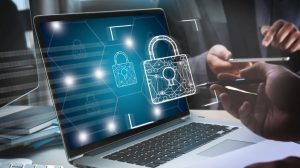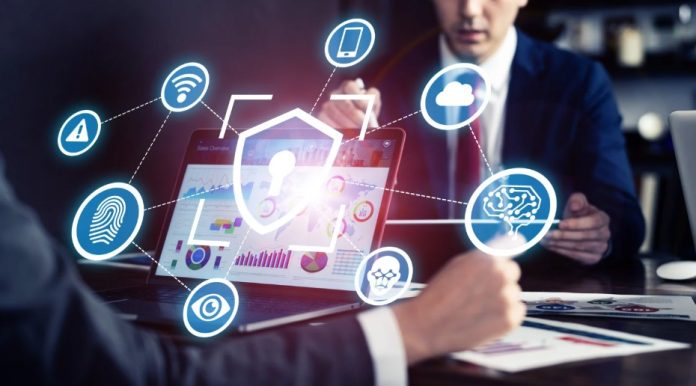Table of Contents
Keeping your office secure is more important than ever. With so many businesses handling sensitive data, expensive equipment, and confidential information, having a strong security system in place is essential.
Luckily, you don’t need to install high-tech gadgets or break the bank to make your workplace safer.
In this article, we will run through five smart and practical ways to improve your office security that any business can adopt (no matter the size or sector).
But first, let’s learn that workplace security is as important as we say. Keep reading to find out more.
Why Is Workplace Security Important?

Keeping your workplace secure protects more than just physical property. It helps to create a safe, productive environment for everyone. Here’s why office security matters:
- Prevents theft and vandalism of equipment and valuables
- Protects sensitive information from being accessed or leaked
- Keeps staff and visitors safe from harm or intrusions
- Improves trust among employees, clients, and stakeholders
- Supports compliance with data protection and insurance requirements
5 Easy Ways To Improve Your Office Security
Not that you know why it is important to invest in the security of your workplace, let’s explore some easy ways that you can implement this into your business.
1. Introduce an Access Control System
Controlling who enters and exits your office is one of the easiest ways to boost security. An access control system limits entry to authorised personnel only, helping to prevent theft, trespassing, and unauthorised access to private areas.
Options include key fobs, swipe cards, and biometric scanners. For smaller offices, even a basic keypad entry system can add a strong layer of protection.
Make sure to regularly update access permissions, especially when employees leave the company or move to new departments.
2. Use ID Cards and Visitor Badges
Issuing ID cards to staff is a simple but effective step that increases visibility and accountability in the workplace. With ID cards, it’s easier to spot who belongs — and who doesn’t.
For extra security, equip your ID cards with magnetic strips or RFID technology that integrates with your access control system. Don’t forget to provide clearly marked visitor badges and ensure guests are always signed in and accompanied by a staff member.
Looking to upgrade your ID system? Browse some of the best-selling ID card printers that make it quick and easy to produce professional cards in-house.
3. Install CCTV and Alarm Systems

CCTV is one of the most powerful deterrents against crime. Even just the presence of cameras can discourage break-ins, vandalism, and antisocial behaviour.
Place cameras at key access points such as entrances, exits, and car parks. Make sure they’re in plain sight, clearly labelled, and fully operational. Modern CCTV systems can even be monitored remotely through your smartphone.
For added protection, install a commercial-grade alarm system. Set it to activate during off-hours and connect it to a local security service if possible.
4. Train Your Team on Security Basics
Technology is important, but people are your first line of defence. Every staff member should be trained on basic security protocols (including locking their computers when away from their desks and challenging unfamiliar faces in secure areas etc).
To ensure everyone is properly trained, you can conduct regular sessions that cover:
- How to handle suspicious emails or packages
- How to securely store company devices and documents
- What to do in the event of a security breach or emergency
When everyone understands their role in keeping the office safe, your workplace becomes much more secure.
5. Keep Important Data and Equipment Protected
When looking at the physical security of your business, you need to think about the inside, and not only the front door and generic alarm systems.
As a business, you’ll have sensitive documents and data that will need to be dealt with carefully.
This said, make sure to store all sensitive documents in locked cabinets, and make sure all computers and servers are password-protected.
You should also encourage your employees to clear their desks at the end of the day and never leave confidential information out in the open.
This includes laptops, tablets, and mobile phones being locked away or secured with cable locks when not in use.
If you do handle particularly sensitive data, consider a safe or secure storage room with an access security system, as this will make sure the room is only accessible to the people who are granted access.
Keep Your Office And Employees Safe

Let’s face it: a safe workplace just feels better. When your team knows they’re protected, they can settle in, focus, and actually enjoy being at work. That kind of peace of mind goes a long way.
Office security might sound confusing, but it really doesn’t have to be complicated. A few smart changes can make a big difference.
This type of business investment involves not only keeping the workspace secure, but also allows you to create the kind of environment where people can really thrive. And when that happens? Everything runs a little smoother.


